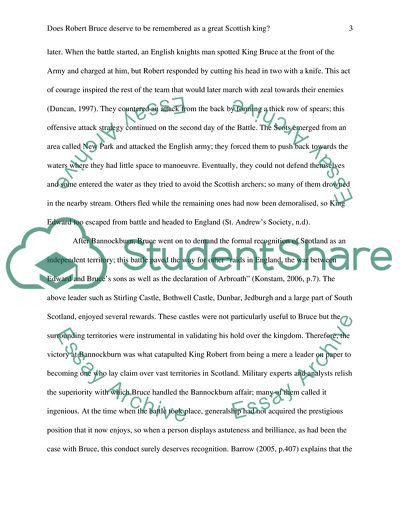Cite this document
(Whether Robert Bruce Deserves to Be Remember As a Great Scottish King Report Example | Topics and Well Written Essays - 2250 words - 2, n.d.)
Whether Robert Bruce Deserves to Be Remember As a Great Scottish King Report Example | Topics and Well Written Essays - 2250 words - 2. https://studentshare.org/history/1831736-does-robert-bruce-deserve-to-be-remembered-as-a-great-scottish-king
Whether Robert Bruce Deserves to Be Remember As a Great Scottish King Report Example | Topics and Well Written Essays - 2250 words - 2. https://studentshare.org/history/1831736-does-robert-bruce-deserve-to-be-remembered-as-a-great-scottish-king
(Whether Robert Bruce Deserves to Be Remember As a Great Scottish King Report Example | Topics and Well Written Essays - 2250 Words - 2)
Whether Robert Bruce Deserves to Be Remember As a Great Scottish King Report Example | Topics and Well Written Essays - 2250 Words - 2. https://studentshare.org/history/1831736-does-robert-bruce-deserve-to-be-remembered-as-a-great-scottish-king.
Whether Robert Bruce Deserves to Be Remember As a Great Scottish King Report Example | Topics and Well Written Essays - 2250 Words - 2. https://studentshare.org/history/1831736-does-robert-bruce-deserve-to-be-remembered-as-a-great-scottish-king.
“Whether Robert Bruce Deserves to Be Remember As a Great Scottish King Report Example | Topics and Well Written Essays - 2250 Words - 2”. https://studentshare.org/history/1831736-does-robert-bruce-deserve-to-be-remembered-as-a-great-scottish-king.


